Overcoming the Cares of Life–STAR-94
Overcoming the Cares of Life
The Cares of Life—For Some a Daily Challenge; For Others A Frequent Distraction
From a general, let’s say, secular standpoint, the cares of life (or cares of this world as interpreted by some Bible translations) are the many elements of everyday living that consume and occupy much of our focus. I would say that jobs, careers, children, relationships; issues and things of everyday life that crop-up out of nowhere like car repairs, illnesses, financial problems, the daily grind of tasks and responsibilities, all fit the bill for what I mean when I refer to the cares of modern-day 21st century life.
The cares of this world, or the cares of this life, are those things—those events, conditions, activities and aspects of life–that “choke-out” the delivered Word of our Elohim that should be operating in each of our lives and that cause us to be “unfruitful.”
The Spirit that is dwelling within each of us tells us that we must not allow the cares of this world to overtake, control or hinder our walk with Messiah. Nevertheless, the cares of life have disproportionately more occasion than naught to overtake, control and hinder our walk with Messiah; and that’s just not the way our life in Messiah should ever be. Unfortunately, the vast majority of us are too tied and influenced by our flesh to not be a constant victim to the cares of this world. What did Master say: “the spirit is willing but the flesh is weak (Matthew 26:41)?”
The Cares of Life Embodied in the Parable of the Sower
The concept of the cares of life is in great part embodied in “The Parable of the Sower.” Although primarily addressing the various states of would-be believers in receipt of the delivered Word of Yahuah, I believe that the principles contained in this parable certainly apply to our topic at hand.
Consider the parable of the sower:
The same day went Yahoshua out of the house, and sat by the sea side.
2 And great multitudes were gathered together unto him, so that he went into a ship, and sat; and the whole multitude stood on the shore.
3 And he spake many things unto them in parables, saying, Behold, a sower went forth to sow;
4 And when he sowed, some seeds fell by the way side, and the fowls came and devoured them up:
5 Some fell upon stony places, where they had not much earth: and forthwith they sprung up, because they had no deepness of earth:
6 And when the sun was up, they were scorched; and because they had no root, they withered away.
7 And some fell among thorns; and the thorns sprung up, and choked them:
8 But other fell into good ground, and brought forth fruit, some an hundredfold, some sixtyfold, some thirtyfold.
9 Who hath ears to hear, let him hear. (Mat 13:1-9 KJV)
Verse 7 of this passage provides us a slight glimpse into the detrimental nature of the cares of life. Master contends, as we will more clearly see explained in verse 22, that the cares of this life have the natural tendency of “choking-out” the spiritual life of a would-be believer. Let’s continue reading:
18 Hear ye therefore the parable of the sower.
19 When any one heareth the word of the kingdom, and understandeth it not, then cometh the wicked one, and catcheth away that which was sown in his heart. This is he which received seed by the way side.
20 But he that received the seed into stony places, the same is he that heareth the word, and anon with joy receiveth it;
21 Yet hath he not root in himself, but dureth for a while: for when tribulation or persecution ariseth because of the word, by and by he is offended.1
22 He also that received seed among the thorns is he that heareth the word; and the care of this world, and the deceitfulness of riches, choke the word, and he becometh unfruitful.
23 But he that received seed into the good ground is he that heareth the word, and understandeth it; which also beareth fruit, and bringeth forth, some an hundredfold, some sixty, some thirty.
(Mat 13:18-23 KJV)
Clearly Master understood how the cares of this life or of this world can adversely affect the life of any would be believer or disciple of His.
So in what forms and influences do the cares of life take?
- Relationships (i.e., marital; work; community; faith community; business; and family)
- Our day-to-day responsibilities
- Our finances
- Our health or the health concerns of loved ones
- Careers
- The material aspects of life, according to the NET Study Bible
- According to Master, even the deceitfulness of riches
Is it no wonder why so many of us in the Faith suffer so many problems and are constantly marginalized and made ineffective by these situations? Individually and collectively, these are focus and time consuming elements.
The Cares of Life and the Sermon on the Mount
The concept of the cares of this world or the cares of life and how it detracts from our daily focus and walk is gloriously touched upon, although not mentioned by name by our Master, in the famously named: Sermon on the Mount. Although taught extensively in the Sunday Schools and pulpits of our Christian denominational past, most of us remember or focus on the very first portion of this amazing teaching where Master goes through the list of kingdom traits: meekness, poorness of spirit, humbleness, teachableness, righteousness, mercifulness, peacemakers and purity of heart; all essential traits for the disciple of Messiah. Nevertheless, possessing and living out such traits are easily overshadowed by the cares of this life. And I believe that Master inherently knew this; He knew the audience that sat before Him on that hillside; He knew the lifestyles and the difficulties and hardships that the average Palestinian Jew of the first-century faced each day of their lives: widespread poverty; political and military oppression from the Romans and a corrupt Herodian governorship; oppression from their religion, Judaism; and of course every conceivable socio-economic ill and corruption one could or would expect in any bustling city or state. Life was amazingly difficult for the average Palestinian Jew and our 21st-century life challenges would easily pale in comparison.
Sakari Häkkinen is a professor of New Testament Studies at the University of Pretoria, South Africa. As it relates to the socio-economic system of the first-century Palestinian Jew, he writes in his research paper entitled: Poverty in the first-century Galilee:
The social and economic policy of the Roman Empire could well be summarised in a phrase: ‘the Roman system of inequality’ (Garnsey & Saller 1987:125).1 Governing the entire Mediterranean world, Rome maintained its domination through judicial institutions developing legislation concerning property ownership and labour control – and through the use of brutal force. The whole system was based heavily on the inequality of people, which was thought to be either natural or at least inevitable, in order to secure peace and stability in the society.
For the Roman State, the provinces were a main source of revenue through taxes. A small number of Romans made large fortunes as provincial governors, tax collectors and moneylenders in the provinces, in the imperial service under the emperors. There were rich Romans who acquired extensive domains in the provinces, which they normally held as absentee landlords (Finley 1999:158). Most of the population of the empire lived either in rural areas or small towns. Only 10% – 15% of the population lived in cities that had more than 10 000 inhabitants. This means that some 80% – 90% got their living from agriculture and that any large-scale commercial or manufacturing activity was rare. There was no middle class at all. The majority of people in an agrarian society like the Roman Empire were peasants, living in villages that surrounded a city. The ancient city was largely parasitic on its surrounding villages. Cities extracted agricultural surpluses through taxes and rents. The benefits they supplied were cultic services and administration (Kloppenborg Verbin 2000:234).2
Interestingly enough, Yeshua, the brilliant teacher and Master that He is, addressed this socio-economic quagmire head-on:
24 No one can be slave to two masters; for he will either hate the first and love the second, or scorn the second and be loyal to the first. You can’t be a slave to both God and money.
25 “Therefore, I tell you, don’t worry about your life – what you will eat or drink; or about your body – what you will wear. Isn’t life more than food and the body more than clothing?
26 Look at the birds flying about! They neither plant nor harvest, nor do they gather food into barns; yet your heavenly Father feeds them. Aren’t you worth more than they are?
27 Can any of you by worrying add a single hour to his life?
28 “And why be anxious about clothing? Think about the fields of wild irises, and how they grow. They neither work nor spin thread,
29 yet I tell you that not even Shlomo in all his glory was clothed as beautifully as one of these.
30 If this is how God clothes grass in the field – which is here today and gone tomorrow, thrown in an oven – won’t he much more clothe you? What little trust you have!
31 “So don’t be anxious, asking, ‘What will we eat?,’ ‘What will we drink?’ or ‘How will we be clothed?’
32 For it is the pagans who set their hearts on all these things. Your heavenly Father knows you need them all.
33 But seek first his Kingdom and his righteousness, and all these things will be given to you as well.
34 Don’t worry about tomorrow – tomorrow will worry about itself! Today has enough tsuris (i.e., problems; challenges) already!
(Mat 6:24-34 CJB)
The Difficulties in Gaining Control of the Cares of Life
I would not be so presumptuous to suggest that Spirit-Filled Torah Observant Believers in Yeshua will not go through stuff or experience the deleterious effects that the cares of this world can have on Father’s elect. We all experience such things and we, depending upon what level of spiritual maturity we find ourselves, handle the situations accordingly or consistent with our level of spiritual maturity.
Nevertheless, we should be compelled to learn and grow from our clashes with the cares of life. For if we continue day-after-day, month-after-month, and year-after-year to allow the cares of life to overtake us and compromise our effectiveness as Yeshua’s disciples, it would seem that we may “have a problem Houston.”
The Weakness of the Flesh Dictates How We Deal with Life
Consider for a moment this nugget—this construct of truth if you will. The cares of life, although seemingly pervasive and at times overwhelming, are fluid and in many cases fleeting. They’re here today and gone tomorrow. Nevertheless, along comes another issue or element to consume us and we find ourselves back in the same rut yet again. The carnival ride of life—of this world—generally has no time and place whereby we can get off and get our feet back on solid ground. Indeed, off to the side, there is a door marked in big red letters—EXIT—but we tend to get so caught up with the intensity of the ride we are on—that is the overwhelming nature of the experience that has imprisoned our thoughts, hearts and bodies–that we’re too “afraid” (for lack of a better descriptor) to simply demand to be let off that ride/experience and then take the exit that leads back to our life in Messiah.
Yet the pursuit of money, careers, fame and fortune often leads to temptations, perversions and personal and spiritual destruction. This of course is not to say that we should not work hard to provide for our families. Our efforts to advance in life must be managed by Father—He will provide for all our needs according to His riches in glory by Yeshua Messiah (Phillipians 4:19.)
Caustic and troublesome relationships will consume and rob us of our joy. Yes, I’m talking about troublesome marriages and other family relationships. Somehow those things must be moderated and subjugated to the will of Father. The longer we allow those relationships to eclipse our focus on Him and consume our spirit, the harder it it is to recover. I’m speaking from experience here. Unhealthy relationships are poisonous and detrimental to one’s walk with Messiah. They must somehow be dealt with.
Politics, financial difficulties, health concerns: they all must be dealt with once and for all through prayer and fasting (Matthew 17:21).
Think about it: the specific cares that you and I may be dealing with today will likely become non-issues and forgotten in the days, months and years ahead. Everything that we worry over and stress about will inevitably come to its proper end in due time. Half the time we don’t even have control over those cares in the first place. Yet at the end of the day, Yahuah remains the only eternal constant in the universe. Somehow we have to be able to put life into its proper perspective and not allow the troublesome things, issues and people in life to get in the way of our eternal destiny and calling. Again, we inherently know this to be Truth, yet so many of us are incapable of actually realizing and living this thing out as we know that it should be. Thus it stands to reason that the one thing that hinders us from living out this Truth and putting life into its proper perspective is the weakness of our flesh. Our spirit-woman or man tells us: you can do this; you can overcome, but our carnal nature tells our spirit that life is just too difficult and impossible to overcome.
Who can forget the Garden of Gethsemane scene where Master was enduring the greatest internal struggles of His earthly life and ministry: He was dealing with the reality of His impending ignominious torture and death and His humanity had begun to overshadow His Spirit. His companions had all but checked out over by the way, succumbing to the weaknesses of their flesh and falling fast asleep, leaving Master to languish in his internal struggles all alone. Yes, even Master had to deal with the cares of this world in one form or another. The passage reads:
36 Then cometh Jesus with them unto a place called Gethsemane, and saith unto the disciples, Sit ye here, while I go and pray yonder.
37 And he took with him Peter and the two sons of Zebedee, and began to be sorrowful and very heavy.
38 Then saith he unto them, My soul is exceeding sorrowful, even unto death: tarry ye here, and watch with me.
39 And he went a little further, and fell on his face, and prayed, saying, O my Father, if it be possible, let this cup pass from me: nevertheless not as I will, but as thou wilt.
40 And he cometh unto the disciples, and findeth them asleep, and saith unto Peter, What, could ye not watch with me one hour?
41 Watch and pray, that ye enter not into temptation: the spirit indeed is willing, but the flesh is weak.
(Mat 26:36-41 KJV)
Master overcame his struggle simply by turning it over to the will of His Father. He said: “nevertheless, not as I will, but as you will.”
The example painted by the disciples: they succumbed to their flesh and slept when their Master needed their support the most.
The Cares of Life and Operating in the Spirit
Sometimes we just don’t want to face the reality of our flesh and subjugate it to the will of our Father. Is it a question of faith? Or is it a question of us feeling more comfortable living out our present situation than relegating those cares to the will and control of Father? I know that many times, when I’m going through the slings and arrows of life, I feel as though I can handle the situation better than Father can—which is a stupid thing to feel, but do not our actions reveal the reality of our spirit—whatever spirit we are working under at the moment?
Operating in the Spirit is an entirely new and uncertain realm for most of us. We can’t see, smell, taste or hear in this realm. Our natural senses do not comfortably serve us in the spirit realm as they do in the carnal realm.
Yet, in order for us to overcome the adverse affects of this world and of life in general, we absolutely must make that transition from the carnal to the spiritual, with the ultimate aim of the Spirit realm being the default realm that we choose to operate in.
A decision has to be made at some point in our walk: will it be about Him or will it be about me? We all know what the correct answer must be: it must be about Him. Ultimately our purpose in the whole scheme of things is to deny self and set out on that march—that race—that journey—that transcends any of the great adventures of man throughout history. The cares of this life cannot impede this journey; for this is a calling that transcends those cares. And you know what: when we are able to properly deal with the cares of life through the Holy Spirit (i.e., the Ruach Kodesh) operating in our lives, we become exceptional husbands, wives, fathers, children, bosses, employees, neighbors and people. I desperately want that for my life.
Paul wrote:
2 Beware of dogs, beware of evil workers, beware of the concision (i.e., the mutilators; the false circumcisers).
3 For we are the circumcision, which worship God in the spirit, and rejoice in Christ Jesus, and have no confidence in the flesh.
4 Though I might also have confidence in the flesh. If any other man thinketh that he hath whereof he might trust in the flesh, I more:
5 Circumcised the eighth day, of the stock of Israel, of the tribe of Benjamin, an Hebrew of the Hebrews; as touching the law, a Pharisee;
6 Concerning zeal, persecuting the church; touching the righteousness which is in the law, blameless.
7 But what things were gain to me, those I counted loss for Christ.
8 Yea doubtless, and I count all things but loss for the excellency of the knowledge of Christ Jesus my Lord: for whom I have suffered the loss of all things, and do count them but dung, that I may win Christ,
9 And be found in him, not having mine own righteousness, which is of the law, but that which is through the faith of Christ, the righteousness which is of God by faith:
10 That I may know him, and the power of his resurrection, and the fellowship of his sufferings, being made conformable unto his death;
11 If by any means I might attain unto the resurrection of the dead.
12 Not as though I had already attained, either were already perfect: but I follow after, if that I may apprehend that for which also I am apprehended of Christ Jesus.
13 Brethren, I count not myself to have apprehended: but this one thing I do, forgetting those things which are behind, and reaching forth unto those things which are before,
14 I press toward the mark for the prize of the high calling of God in Christ Jesus.
15 Let us therefore, as many as be perfect, be thus minded: and if in any thing ye be otherwise minded, God shall reveal even this unto you.
16 Nevertheless, whereto we have already attained, let us walk by the same rule, let us mind the same thing.
(Phi 3:2-16 KJV)
How Do We Overcome the Cares of Life
So I asked myself: how do I overcome this thing? How do I overcome the cares of this life? It’s one thing to know and understand that I must pray, fast and power through life, but it’s an entirely different thing to actually live this out and not succumb to this fleshly tendency to allow the cares take over. There must be an overriding fix to this perpetual problem; some secret but powerful method to overcoming life’s many challenges; to staying focused; to defaulting to living in the Spirit as opposed to living in the flesh. What is that? What could that be?
As I searched the Bible for answers to these questions, the Spirit led me to what I believe to be the answer (or at least a potential answer): that being adopting, maintaining and exercising “The Mind of Messiah.”
The Mind of Messiah—A Must for Overcoming the Cares of Life
The “Mind of Messiah” (in the KJV, “Mind of Christ) is a concept found but one place in the Bible, at the end of a dissertation on the subject of “wisdom,” by the Apostle Paul. The passage reads:
6 Howbeit we speak wisdom among them that are perfect: yet not the wisdom of this world, nor of the princes of this world, that come to nought:
7 But we speak the wisdom of God in a mystery, even the hidden wisdom, which God ordained before the world unto our glory:
8 Which none of the princes of this world knew: for had they known it, they would not have crucified the Lord of glory.
9 But as it is written, Eye hath not seen, nor ear heard, neither have entered into the heart of man, the things which God hath prepared for them that love him.
10 But God hath revealed them unto us by his Spirit: for the Spirit searcheth all things, yea, the deep things of God.
11 For what man knoweth the things of a man, save the spirit of man which is in him? even so the things of God knoweth no man, but the Spirit of God.
12 Now we have received, not the spirit of the world, but the spirit which is of God; that we might know the things that are freely given to us of God.
13 Which things also we speak, not in the words which man’s wisdom teacheth, but which the Holy Ghost teacheth; comparing spiritual things with spiritual.
14 But the natural man receiveth not the things of the Spirit of God: for they are foolishness unto him: neither can he know them, because they are spiritually discerned.
15 But he that is spiritual judgeth all things, yet he himself is judged of no man.1
16 For who hath known the mind of the Lord, that he may instruct him? But we have the mind of Christ.1
(1Co 2:6-16 KJV)
Concepts such as wisdom, the wisdom of God, the world tomorrow, the spirit of this world, the Spirit of God, man’s wisdom, spiritual things, the natural man, spiritual discernment, and of course, the mind of Messiah are essential to our spiritual wellbeing and our ability to overcome the cares of life.
Closing Thoughts and Reflections
The concept of adopting, maintaining and exercising a “Mind of Messiah” is not a concept that I would dare to explore and reflect upon during the remaining moments of this episode—the content is just too vast and important for me to rush through it. So what I would like to do is stop here and pick this topic up next episode—Abba willing. That way I can cover more ground without extending the length of time for this episode further, as well as it will provide me a few days to allow my spirit to connect and understand this concept even better than I already do.
God Prohibits His People from Badmouthing Government Leaders—Thoughts and Reflections on Torah Reading 61
Shabbat Shalom beloved. In this Thoughts and Reflections of Torah Reading 61, we will examine a number of themes and concepts that fall within the realm of loving Yah and loving one’s neighbor as one would love themselves. I’ve taken the liberty of breaking this...
Dealing with Difficult Relationships-Thoughts and Reflections on Torah Reading 60
Shabbat Shalom saints of the Most High. May you, your families, and your fellowships be well and blessed in the perilous times we’re living. Central Themes and Life Lessons of Torah Reading 60 I’ve entitled this reading study: Dealing with Difficult...
The Fox in the Hen House–The LGBTQ Infiltration of Judeo-Christianity
Shalom beloved. I pray that this installment of The Messianic Torah Observer Journal finds you, your families, and your fellowships well and blessed. They Say that Curiosity Kills the Cat True to form, Hilary and I canvassed portions of YouTube to augment our worship...
We’re Getting Married in the Morning–Thoughts and Reflections on Torah Reading 59
Shabbat Shalom Saints of the Most High. Welcome to the second post of our The Messianic Torah Observer Journal. Today is a special day of sorts. It’s not only the Sabbath, but it is also the start of the 9th Biblical Month. Rosh Chodesh. There are no mandated Feasts...
Learning to Lean on Yeshua Messiah–Thoughts and Reflections on Torah Reading 58
Shabbat shalom beloved. We pray that you, your families, and your fellowships are well and blessed during these perilous times. Despite these being perilous times, beloved, we who are the redeemed of Yah through Yeshua Messiah, can find refuge and shalom in our...
We were Baptized into Moses in the Red Sea
Our Baptism in the Red Sea Was Illustrative of our Transformation into the People of God So, in our departure from Mitsrayim/Egypt, which was representative of a would-be child of Yah coming into a covenant relationship with Yah through the Person and Ministry of...
Walking in God’s Divine Guidance and Protection
Introduction This week’s Torah Portion/Parshah/Reading is the 56th Reading in our 3-year Torah Reading Cycle. And it is contained in the Cepher of Exodus/Shemot 13:21-15:18. It is a continuation of last week’s reading which I entitled “The Key to Knowing...
The Key to Knowing God: Remembering and Obeying
In the past two readings, which we did not cover because we were on hiatus for the Fall Feasts, Yisrael experienced or witnessed the inauguration of Pesach in the midst of the final tenth plague that resulted in the death of every Egyptian/Mitsri firstborn and the...
The Thirst-Quenching Waters of Sukkot-The Feast of Tabernacles 2022
Sukkot-The Feast of Tabernacles is the Season of our Joy True joy is an offshoot of the indwelling of the Holy Spirit or the Ruach HaQodesh in each of us. Our joy, especially as expressed through Yah's Feasts, is incomplete without the Ruach HaQodesh's influence....
Getting to the Heart of Yom Kippur–Day of Atonement 2022
Yom Kippur Just a Day of Fasting? What did Yah truly mean by His people afflicting their souls on Yom Kippur? Was He commanded us to engage in just a fast? Turns out that Abba requires more from us on Yom HaKippurim than just a full day of not eating and drinking....
The Realities of Yom Teruah 2022
Introduction to our Discussion Welcome to the Day of the Blowing of Trumpets, or better, the Blowing of Shofars 2022. And with that, we pray that you are earnestly preparing and eagerly awaiting the arrival of Yom Teruah 2022. The title of our...
An Overview of the Fall Feasts of the LORD 2022-Part 1 of the Fall Feasts of the LORD 2022 Series
Resurrection Truth versus Rapture Error-Part 3 of the Death, the Grave, and the Resurrection Series
Introduction This is “Resurrection Truth versus Rapture Error.” This will be the 3rd installment to our Death, the Grave, and Resurrection series which spun off from our Torah Reading 45 which was entitled “And he (Ya’achov) was Gathered Unto His People. ...
Even the Small Things Matter to God-A Messianic Study of Exodus 4:22-26-STAR-48
Introduction This is “Even the Small Things Matter to God.” This is the 48th Reading of our 3-year Torah Reading Cycle. It is contained in Exodus/Shemot 4:14-6:1. But we will be focusing just on verses 22 to 26. Looking Back to STAR-47, entitled “God’s Holy...
Rosh Chodesh 6th Month 2022-The Start of the 6th Biblical Month
Chag Sameach Rosh Chodesh beloved. Happy and blessed 6th Month to you all. As I am posting this brief discussion here on The Messianic Torah Observer, the renewed moon will have been sighted by at least two-trained observers in Yisra’el. Thus, wherever we live ...
God’s Holy Character–A Messianic Study of Exodus 3:1-4:13
Introduction This is God’s Holy Character-A Messianic Study of Exodus 3:1-4:13. It is the 47th Torah Portion of our 3-year Torah-reading cycle. Now, despite there being a great many historical and spiritual nuggets that the practical, truth-seeking...
Israel-The Birth of a Nation Through Tribulation-STAR-46
This is Israel: The Birth of a Nation Through Tribulation. It is a study of the 46th Parshah of our 3-year Torah Reading Cycle. This week's reading is found in Exodus/Shemot 1:1-2:25. Introduction to the Reading The historical record transitions from that of a focus...
Death-the Grave-the Resurrection-Part 2
Introduction This is part 2 of our discussion on death, the grave, and the resurrection. And we will be picking up where we left off in part 1, which if you haven’t had the opportunity to either read or listen to that post on any of the platforms in which...
He Was Gathered unto His People-Death-The Grave-The Resurrection–Part-1–STAR-45
Introduction This is “He Was Gathered unto His People—Death-The Grave-The Resurrection—Part 1” This will be a discussion on the 45th Torah Reading of our 3-year Torah Reading Cycle. Our focus text is Genesis/Beresheit 49:27-50:26. This passage concludes...
The 9th of Av–You Are Called by Name–STAR-44
Tisha B'Av--The 9th of Av--"The Saddest Day of the Jewish Calendar Year." According to Hillel’s Calendar, which I frequently refer to as the Jewish Calculated Calendar, as I am recording and posting this installment of TMTO Sabbath Thoughts and...
“Let No Man Judge You” in Your Keeping of Torah–A Messianic Examination of Colossians 2:16-17
This is "Let No Man Judge You" in Your Keeping of Torah--A Messianic Examination of Colossians 2:16-17. This is sort of a continuation, if you will, to our very last installment which was entitled “Did the Apostle Paul Permit the Eating of all Meats? A...
Did the Apostle Paul Permit the Eating of All Meats? A Messianic Examination of 1 Timothy 4:1-5
Setting the Table for our Discussion Here Today This is “Did the Apostle Paul Sanction/Permit the Eating of all Meats? A Messianic Examination of 1 Timothy 4:1-5.” Our discussion here today will serve as another installment to our massive Paul and Hebrew...
Does Torah Cause Someone to Sin More? A Messianic Examination of Romans 5:20
Goal: This is “Does Torah Cause Someone to Sin More? A Messianic Examination of Romans 5:20.” And so, our survey of the hard-to-understand—those challenging Pauline passages—takes us in today’s installment of TMTO, to Romans 5:20. And the KJV...
Experiencing the Wisdom of God Persists Even in the Midst of Despair–STAR-37
This week's portion is the 37th-Reading of the 3-year Torah Reading Cycle (STAR-37). And it is a familiar passage. For it is the story of Yosef interpreting the dreams of the cupbearer and baker in the Egyptian prison. If we recall STAR-36, Yosef was cast into prison...
Amazing Things Happen When God is with Us–Torah Reading 36–The Story of Joseph and Potiphar’s Wife
Our Torah Reading for this Shabbat of 6/11/2022 is found in Genesis 39:1-23. It is The Story of Yosef and Potiphar's Wife. We find in this reading, themes of righteousness; trust; loyalty; prosperity; sexual immorality; favor-favor with man and favor with God; and...
Finding Peace with God-Eternal Life and a Blessed Assurance
This is “Finding Peace with God—Eternal Life and a Blessed Assurance.” This is a continuation of our Paul and Hebrew Roots mega-series where we’ve been discussing some of the more challenging—hard to understand Pauline writings. And we’ve been spending most of our...
The Story of Judah and Tamar: A Reminder that Yah’s Will Shall Already Triumph Over Humanity’s Carnality
This Week's Torah Reading #35--The Judah-Tamar Story This week's Torah Reading, number 35 in our three-year Torah Reading cycle, is found in Genesis/Beresheit 38:1-30. It is the story of Yehudah (aka Judah) and Tamar. It conveys tremendous spiritual lessons that...
Shavuot-Pentecost 2022 in Focus–Netzari-Messianic Perspectives on the Feast of Shavuot
1. An Introductory Primer on Shavuot What is Shavuot? For the Torah Observant Believer in Yeshua Messiah, Shavuot—The Feast of Weeks—Pentecost is about the giving and receiving of YHVH’s Torah and the establishing of the marriage covenant between YHVH and the Children...
The Inapplicability of Torah–Part 3 of Where There is no Law There is no Transgression
This is “The Inapplicability of Torah.” It is the final installment to our 3-part series within a series entitled “Where There is no Law There is no Transgression.” Because I have so much content to cover today and I’m led to bring this series within a series to a...
Where There is no Law There is no Transgression-Part 2-The Role of Torah in the World
Quick Review of Part 1 Our focus passage was Romans 4:11-15 with particular emphasis on verse 15: For Torah brings wrath, because where there is no law there is no transgression [of the law]. Unfortunately, denominationalists erroneously use this and related...
Where there is no law, there is no transgression: Part-1-The Difference Between Sin and Transgression of the Law
A Continuation of Where we Left Off Today, we sort of pick up where we left off in our previous Paul and Hebrew Roots series. If you recall from our last installments to this series, the so-called Apostle to the Gentiles asserted to his Roman readers that he fully...
The Exceeding Kingdom Qualifying Righteousness That Takes us from Passover to Tabernacles-Part 2–Maintaining our Righteous Garments
Goal I will be picking up from where I left-off from Part-1 of our last discussion entitled "The Exceeding Kingdom Qualifying Righteousness That Takes us from Passover/Pesach to Tabernacles/Sukkot.” Or rather, from Babylon/the world to the Kingdom. And if by...
Overturning Roe v. Wade and the Modern Messianic-Thoughts and Reflections
A Leak That is Shaking up Nation On M-nday, 5/2/2022, The Epoch Times reported that a supposedly leaked U.S. Supreme Court document suggests that the Judicial Branch of this country may finally overturn controversial Roe V. Wade. News of this leak rocked the...
God Humbles Those Who He Enters into Covenant With
This is an overview of the 30th Reading of our 3-year Torah Reading Cycle. It is found in Genesis/Beresheit 31:3-32:2. I use the Hebrew names of the patriarchs throughout this post. And just to familiarize you with the names so as to not cause any confusion:...
The Exceeding Kingdom Qualifying Righteousness That Takes us from Passover to Tabernacles-Part 1
The Exceeding Kingdom Qualifying Righteousness That Takes Us from Passover to Tabernacles-Part 1 One of the many things about Passover (aka Pesach) and the Days of Unleavened Bread (aka Chag HaMatzah) that we must be mindful of as we progress through the...
Keeping Passover by Way of the Renewed Covenant-Part 3 of Keeping Passover and Unleavened Bread in 2022
This is the third and final installment to our “Keeping Passover and Unleavened Bread in 2022” discussions. This installment is entitled “Keeping Passover by Way of the Renewed Covenant-In Spirit and in Truth.” If by chance you did not read or listen to...
Keeping Passover by Way of the Original Covenant-Part 2 of Keeping Passover and Unleavened Bread in 2022
This is “Keeping Passover and Unleavened Bread in 2022.” This will be part two (2) of a three (3) part discussion on Passover and the Feast of Unleavened Bread or Chag HaMatzah, which I’ve elected to entitle this particular discussion: “Keeping Passover by Way of the...
Some Passover Basics-Keeping Passover and Unleavened Bread in 2022-Part 1
This is “Some Passover Basics.” It is the first installment of a three (3) part series I chose to entitle: “Keeping Passover and Unleavened Bread in 2022.” We have a lot to cover. So let’s get right into it. For those of us who keep the Observational...
Shabbat HaGadol–The Pathway Towards our Redemption and Atonement-STAR-28
This is Shabbat HaGadol: The Pathway Towards our Redemption and Atonement. In observing Jewish circles, this Sabbath is referred to and celebrated as “Shabbat HaGadol.” Otherwise referred to as the great Sabbath, Shabbat HaGadol is traditionally held on...
Guarding the Month of Aviv-Aviv’s Critical Importance to God’s Covenant Elect
Opening Remarks "Observe the month of Abib, and keep the Passover unto Yehovah thy Elohim; for in the month of Abib Yehovah thy Elohim brought thee forth out of Egypt by night" (Deu./Devarim 16:1; ASV modified). Which brings me to the title of this discussion...
Birthrights-Blessings-Covenant Promises: Lessons Learned from the Story of Esau and Jacob-Part 2-STAR-26
This is Birthrights, Blessings, Covenant Promises-Lessons Learned from the Story of Esau and Jacob, Part 2. This will be the 26th Torah Reading or Parshah of the 3-year Torah Reading Cycle. Our reading is found in Genesis or Beresheit 27:30-38:9. Having...
Birthrights-Blessings-Covenant Promises-Lessons Learned from the Story of Esau and Jacob-Part 1-STAR-26
This is Birthrights, Blessings, Covenant Promises-Lessons Learned from the Story of Esau and Jacob, Part 1. This will be the 26th Torah Reading or Parshah of the 3-year Torah Reading Cycle. Our reading is found in Genesis or Beresheit 27:30-38:9. As in...
Does Paul Discourage God’s People from doing Good Works or Keeping Torah in Favor of Faith? Part 2 of The New Testament Validates the Necessity of Torah Living for God’s People Series
This is “Does Paul Discourage God’s People from doing Good Works in Favor of Faith?” This will be part 2 of our Paul Officially Validates Torah Living for God’s People series. Our focus passage for this discussion is found in Romans 4:1-8. But we will pay...
The Realities of Covenant Blessings in this World-Covenant Lessons Learned from Isaac-STAR-24
Clarify Chosen STAR-23 Post Before we begin our reading discussion for this week, I wanted to add just a thought to last week's post entitled "How do we know if we have been chosen to be in covenant with God." If you've not had the opportunity to read or...
How do we Know if We’ve Been Chosen to be in Covenant with God? –STAR 23
This is “How do we Know if we Have been Chosen to be in Covenant with God?” It is the 23rd parshah/reading of our 3-year Torah Reading Cycle. It’s found in Genesis or Bereshit, 25:1-26:11. It’s a longer reading than most in the 3-year reading cycle. But because the...
Biblical Rosh Hashanah 2022 Update
Starting off, I would be remiss if I did not connect this update with my last post entitled "Why I Keep the Torah (Observational) Calendar and not the Other Popular Messianic Calendars." In that post, I gave five reasons why I keep the Torah (Observational) Calendar....
Why I Keep the Torah (Observational) Calendar and not the Other Popular Messianic Calendars
Goal of this Post The timing and purpose for this post is not one of happenstance. For this week is a most critical time for those of us who keep the Torah (Observational) Calendar. This week, a number of trained and experienced search teams consisting of Karaite Jews...
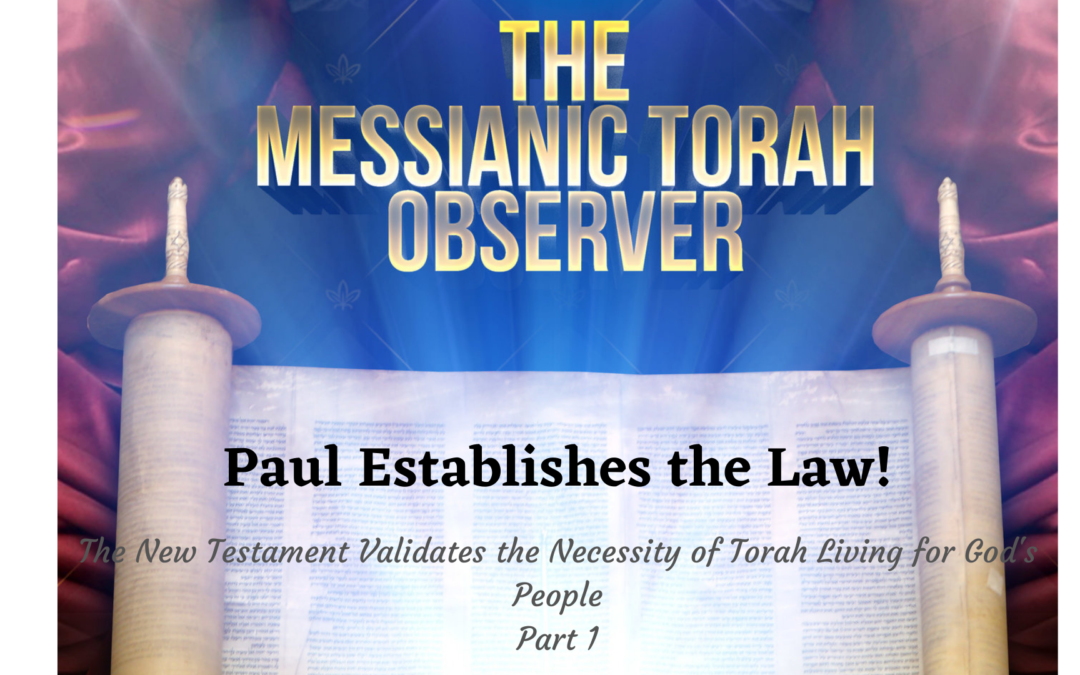
Paul Establishes the Law-Part 1 of the New Testament Validates the Necessity of Torah-Living for God’s People Series
In today’s discussion, we will attempt to define what the apostle means by “we establish Torah” in light of those seeming “anti-Torah” statements he makes in chapter 3 of the Book of Romans.
The Messianic Versus the World-Part 1-The Messianic Against the Corrupt and Evil Governments, Leaders and Sheeple of this World
The Messianic Versus a Corrupt World The governments of this world along with their leaders are openly evil and corrupt. They have brazenly shown that they have no shame in this regard. Many, in fact, have boasted of their evil and corrupt ways and intentions to...
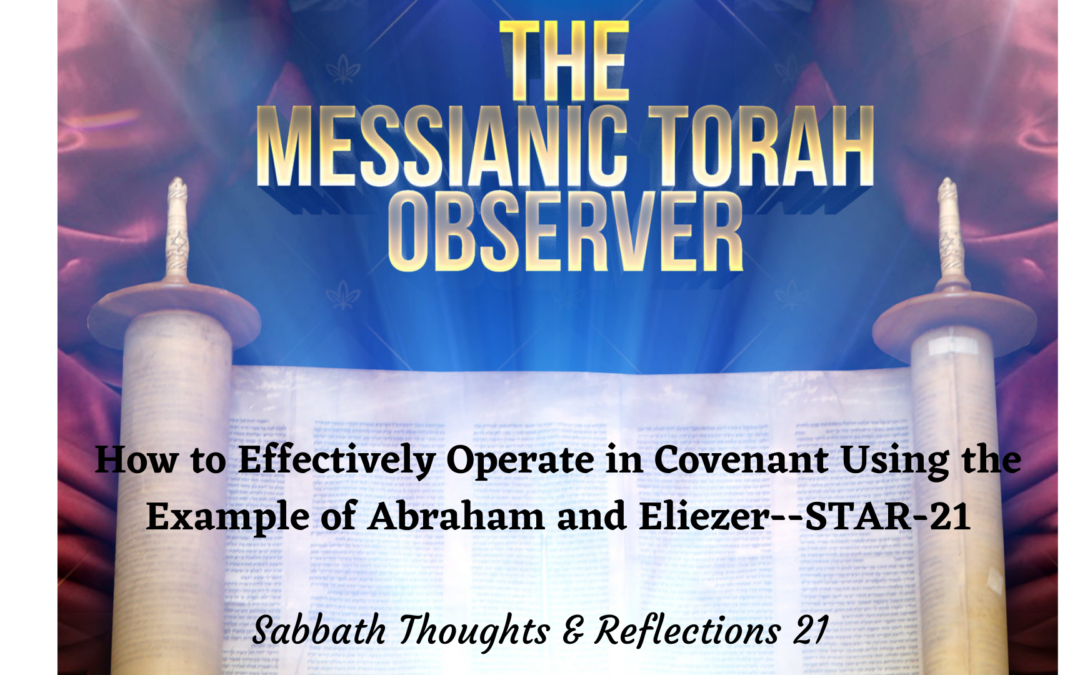
How to Effectively Operate in Covenant Using the Example of Abraham and Eliezer–STAR-21
We’ve talked quite a lot about be the importance of being in covenant and operating in covenant. But how does one operate in covenant? What is needed to operate in covenant. Well, this week’s Torah Reading may provide us the answers to these questions. Shabbat Shalom and Welcome.
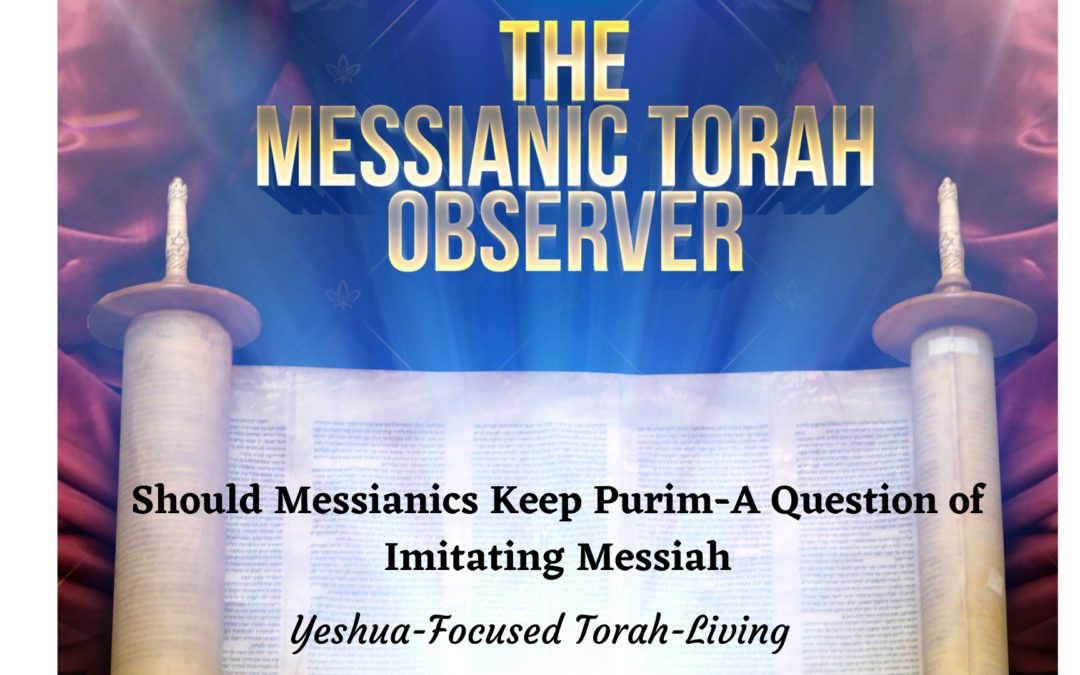
Should Messianics Keep Purim? A Question of Imitating Messiah
In this installment of TMTO, we ask and answer the question: Should Messianics keep-observe-honor-memorialize Purim? And in our brief exploration of this topic, we examine opposing views as it relates to Messianics and Purim.
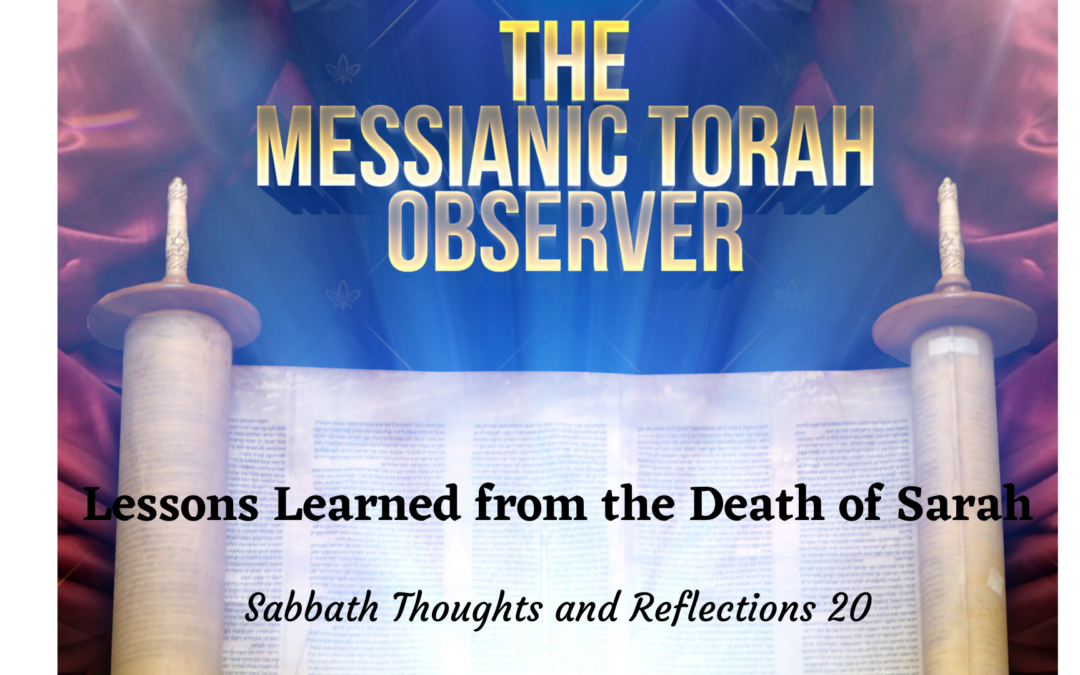
Lessons Learned from the Death of Sarah-STAR-20
In our Torah Reading for this Sabbath, we read of the death of the Matriarch of our Faith, Sarah. And in our discussion, we will explore the eternal truths associated with this sad, but important story. We will touch upon the themes of loving our wives; being a sojourner in this world; burial versus cremation when caring for a deceased loved one; as well as we’ll examine many of the historic and cultural elements that are attached to this beautiful Reading. Shalom and Welcome.
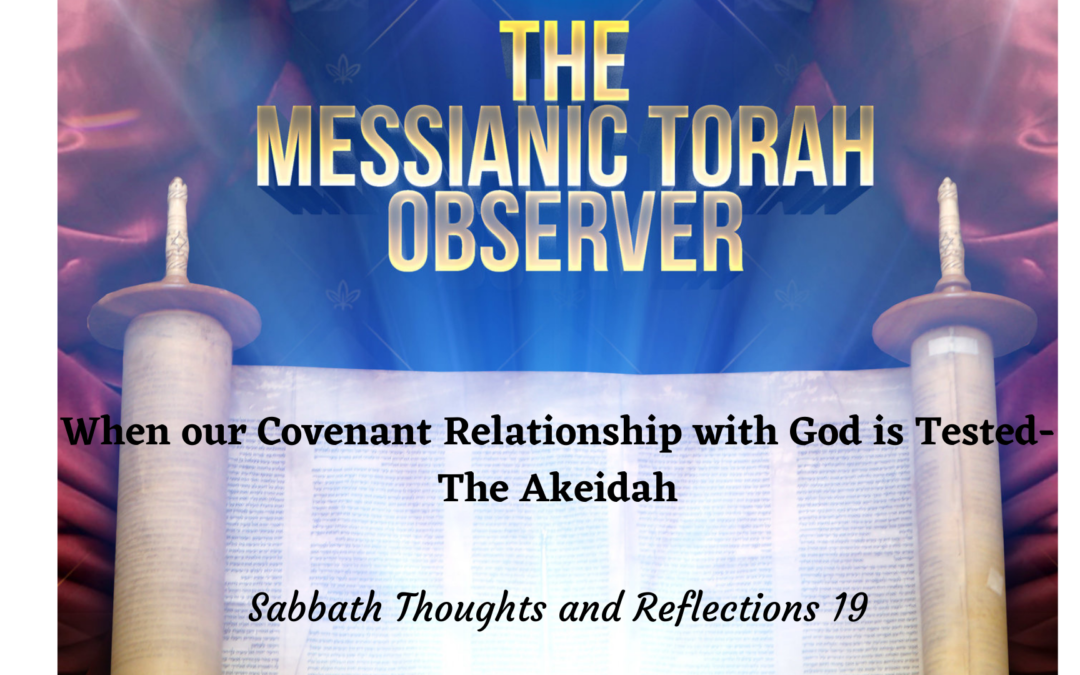
When our Covenant Relationship with God is Tested-Akeida-STAR-19
This week’s Torah Reading is that of the Akeidah or the binding of Isaac. It is a story about obedience, trusting faith and the ultimate goal of the Abrahamic Covenant. We will also explore the ramifications associated with God’s testing of those whom He loves. This is one of the most important Torah Reading Discussions of the Torah Reading Cycle. Come fellowship with us and let’s discuss the Eternal Mysteries of Yah’s Eternal Words of Life.
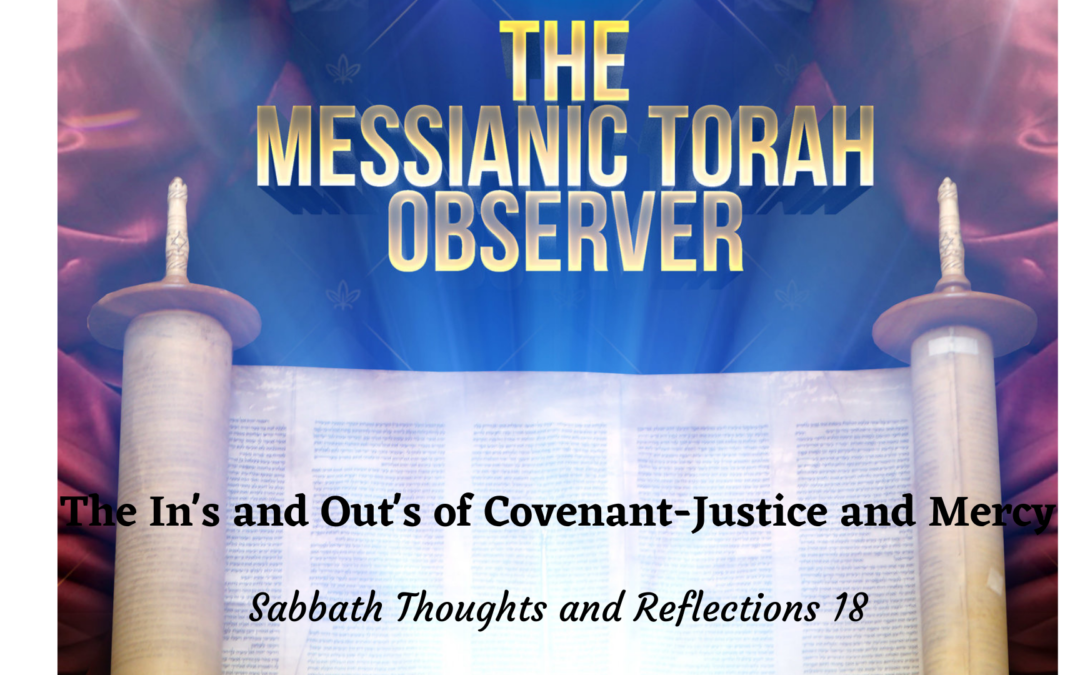
The In’s and Out’s of Covenant-Justice and Mercy-STAR-18
Many of us view covenant as an exclusive club or culture that belongs to God’s elect and those who find themselves outside of covenant are doomed to be outside of God’s blessings and provision. But the truth of the matter is that God operates in ways that are often foreign to us and that defy how we believe God should operate. In today’s Torah Reading discussion, we discuss the in’s and out’s of covenant and how God’s justice and mercy define how He will interact with those who are in covenant versus those who are outside covenant.
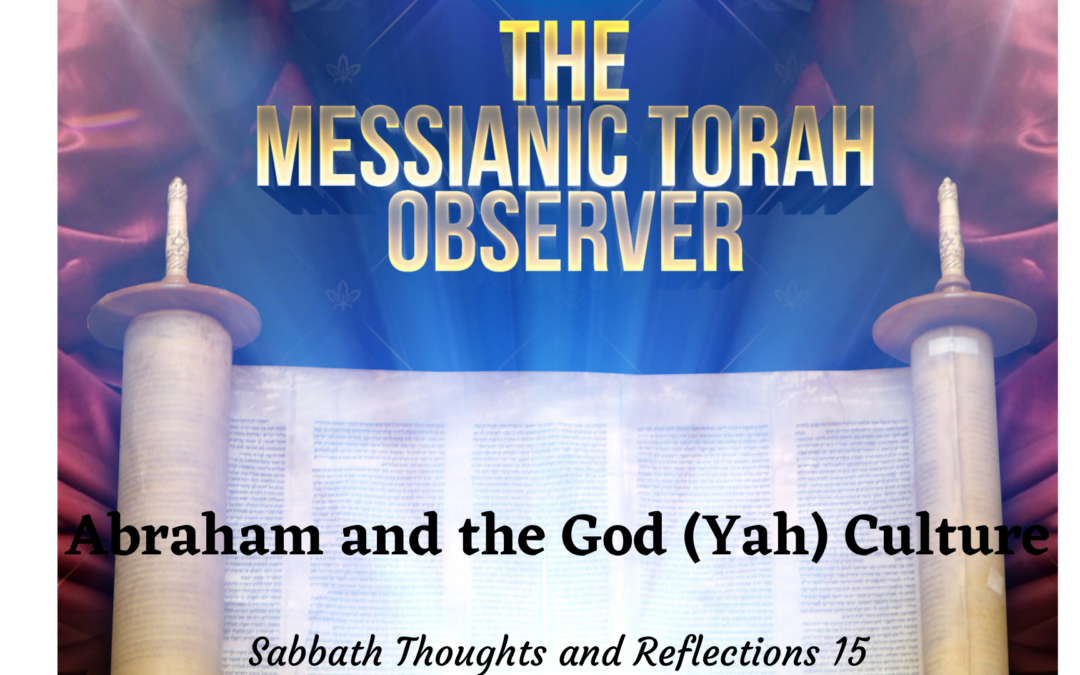
Abraham and the God (Yah) Culture–Sabbath Thoughts & Reflections 15
This week’s Torah Reading touches on a number of relevant themes that include righteousness, justice, reverence, hospitality, boldness, laughter, theophanies and covenant. But the one theme that stands out most is culture. In this installment of TMTO’s Sabbath Thoughts and Reflections, we explore each of these themes, in particular the theme of culture. What is the God Culture/the Hebrew Culture? What was Abraham’s role in that Culture? And what does that culture have to do with us today?
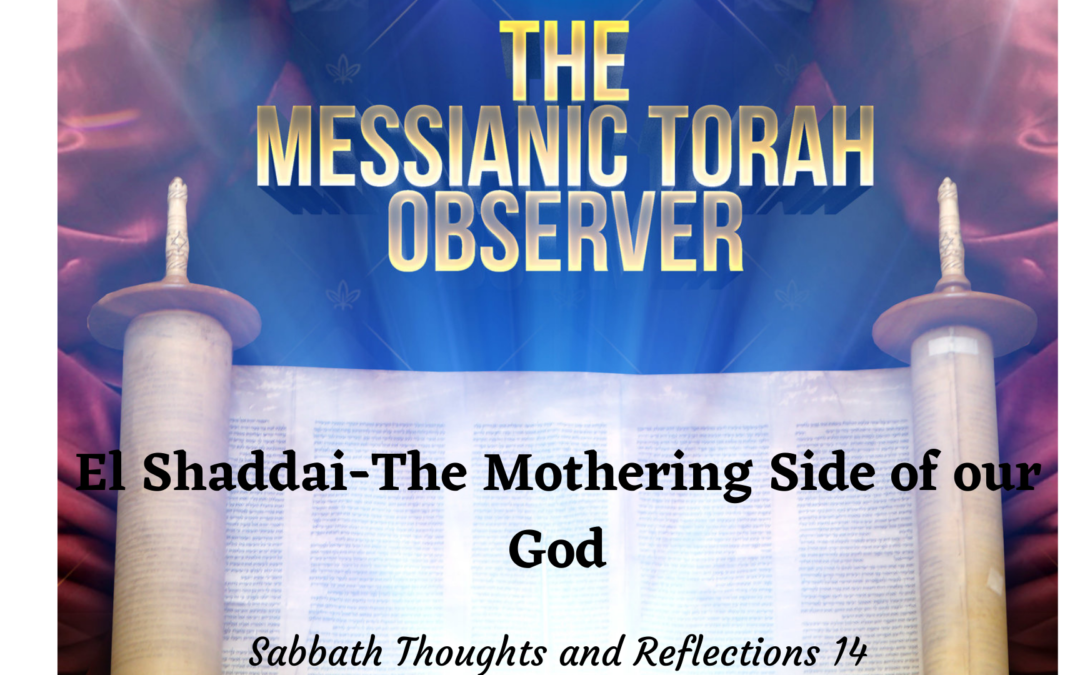
El Shaddai-The Mothering Side of our God-STAR 14
Seems we have been indoctrinated to view God exclusively from a “Fathering” perspective. But could one of God’s revealed names be indicative of a “Mothering” side to the Creator of the Universe? In this installment of TMTO we explore and discuss the power and meaning of El Shaddai.
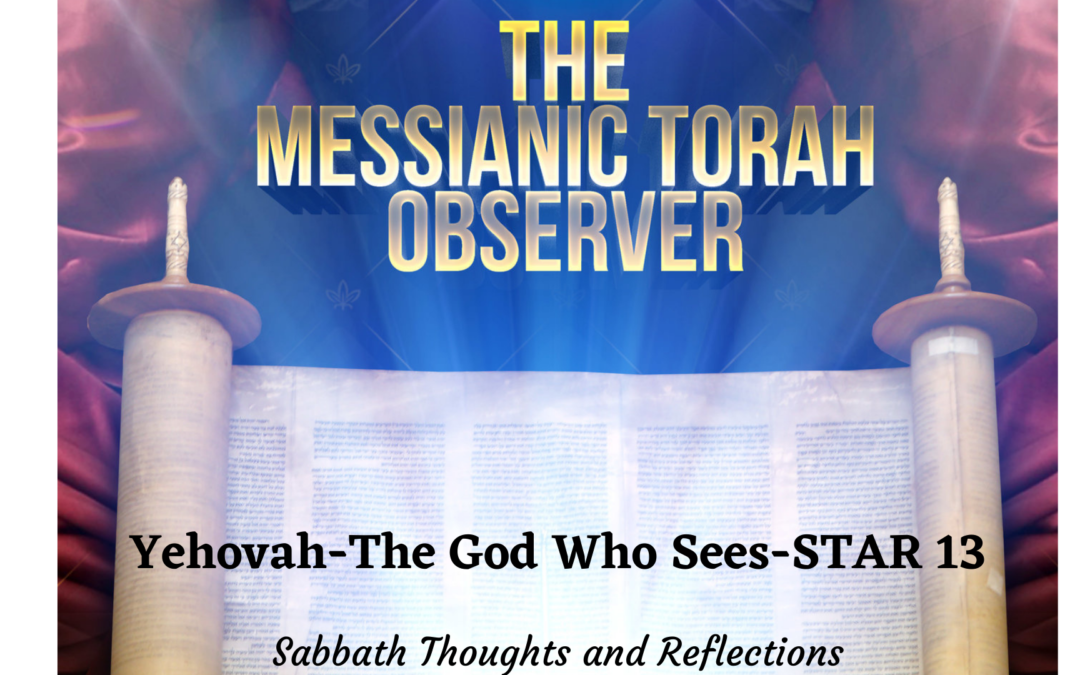
Yehovah-The God Who Sees-STAR 13
In our reading today, we’re led to think and reflect on the themes of:
● Trusting Faith
● Respect
● Patience & Perseverance
● Responsibility
● Honor
● The Spirit Realm Intersecting with the Physical Realm
● Promise
● Sonship
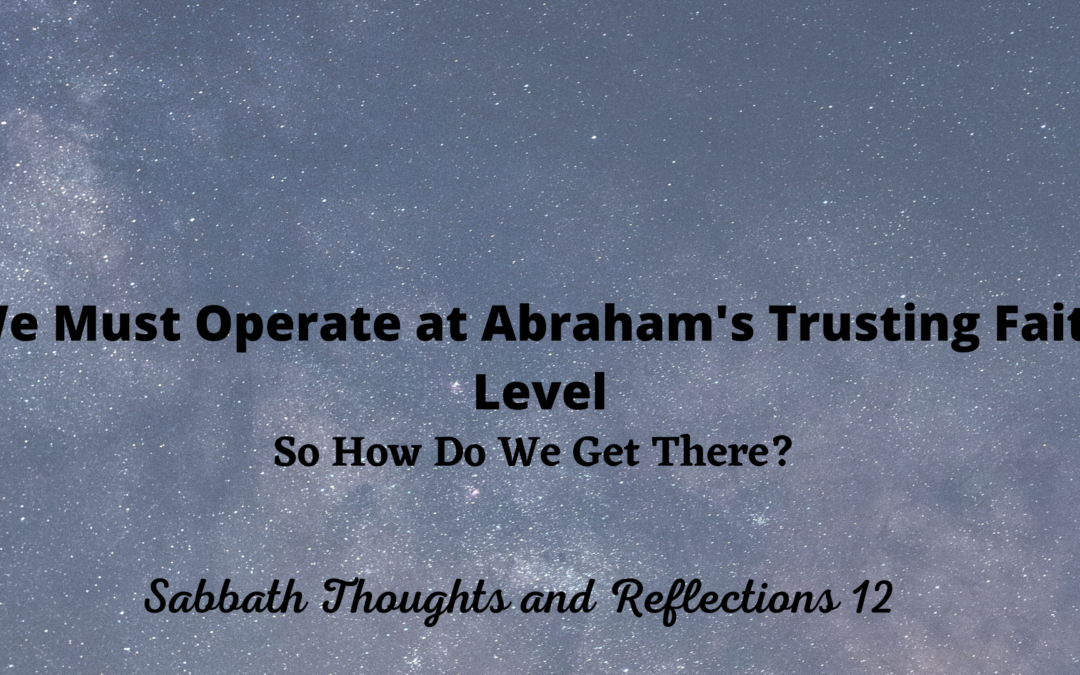
We Must Operate at Abraham’s Trusting Faith Level-So How Do We Get There? STAR 12
Today’s Torah Reading discussion will touch upon a great many themes that include operating in a trusting faith; the righteousness of Elohim; obedience to Yah’s instructions; divine protections and rewards; and the wisdom of challenging or questioning Yehovah.
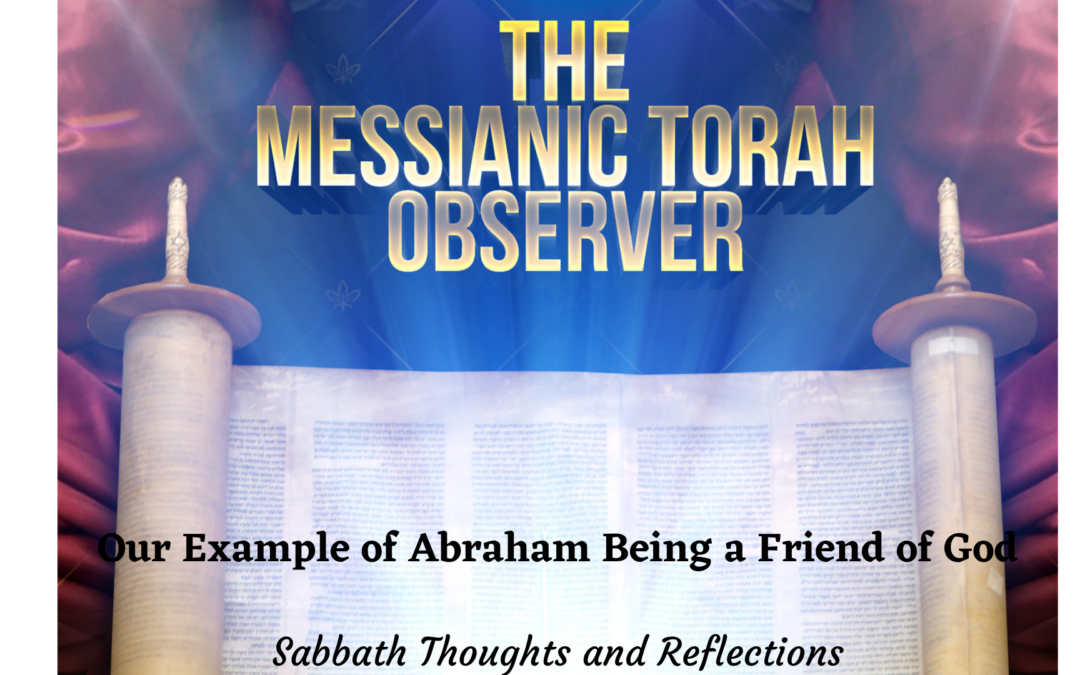
Our Example of Abraham Being a Friend of God-STAR-11
The circumcised heart of an individual—contrite and broken and humble in spirit—is the one thing that captures Yah’s attention and places him or her in contention for being chosen as His friend and ultimately His child. If our heart ain’t right, we ain’t going to be chosen to enter into an obedient covenant relationship with Yehovah, much less a friend or child of His.
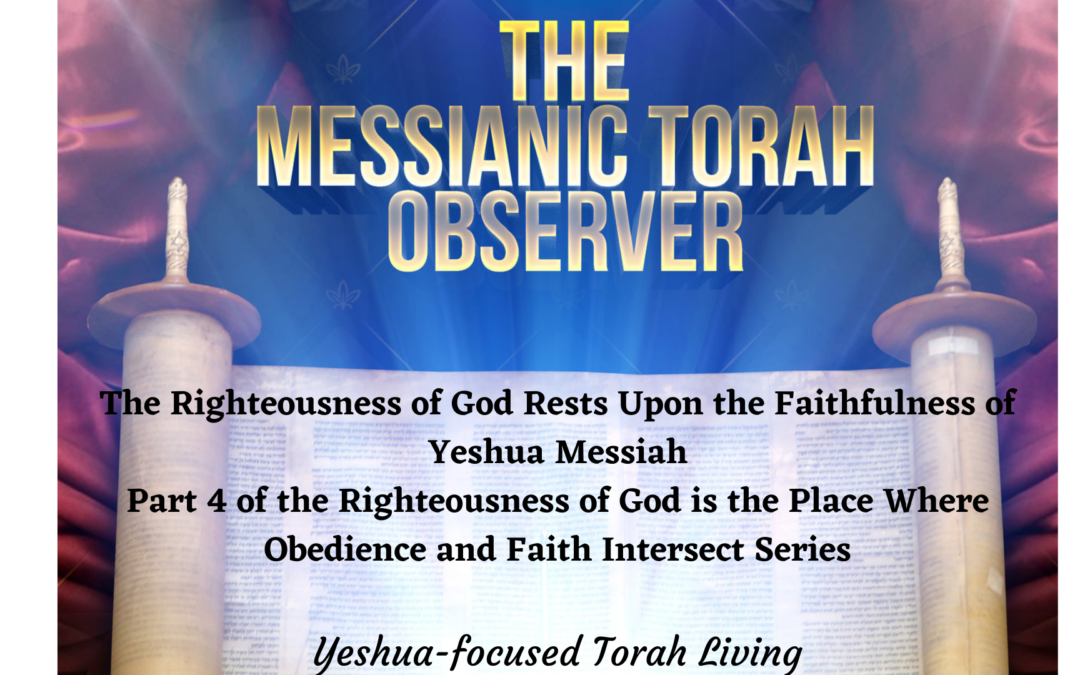
The Righteousness of God Rests Upon the Faithfulness of Yeshua Messiah
Indeed, the Righteousness of God is the place where faith and obedience come together through the Person and Ministry of Yahoshua Messiah. His faithful obedience to Yehovah becomes our faithful obedience, even unto death.
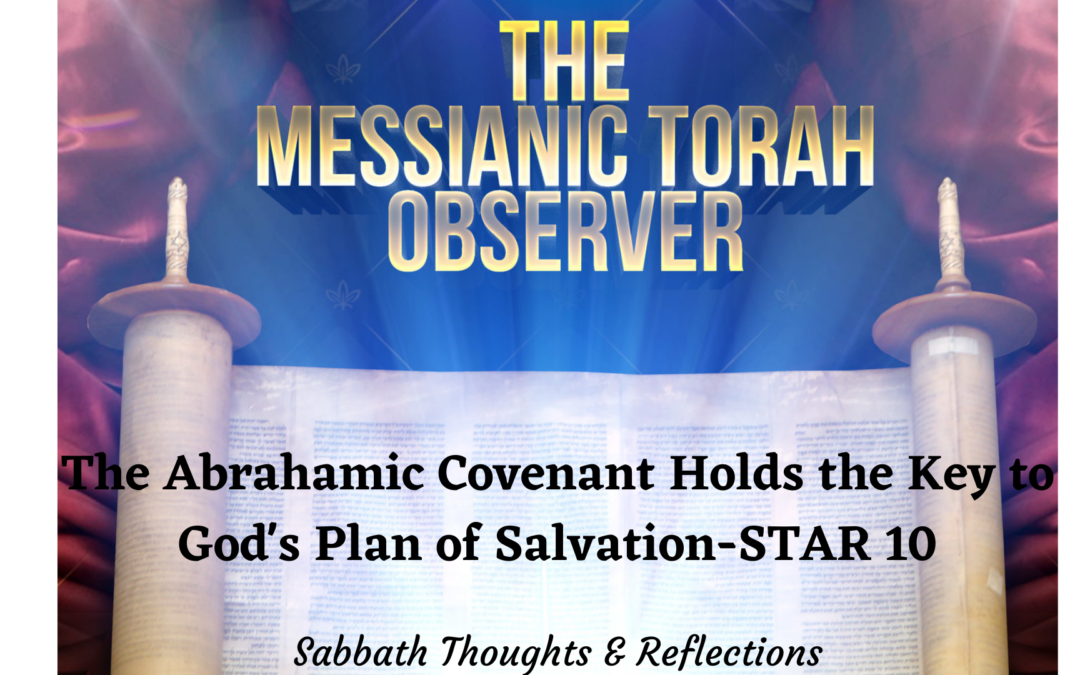
The Abrahamic Covenant Holds the Key to God’s Plan of Salvation-STAR 10
The Abrahamic Covenant is the essential element of this week’s Torah Reading. We find in our discussion that the Abrahamic Covenant holds the key to God’s Plan of Salvation. Shabbat Shalom.
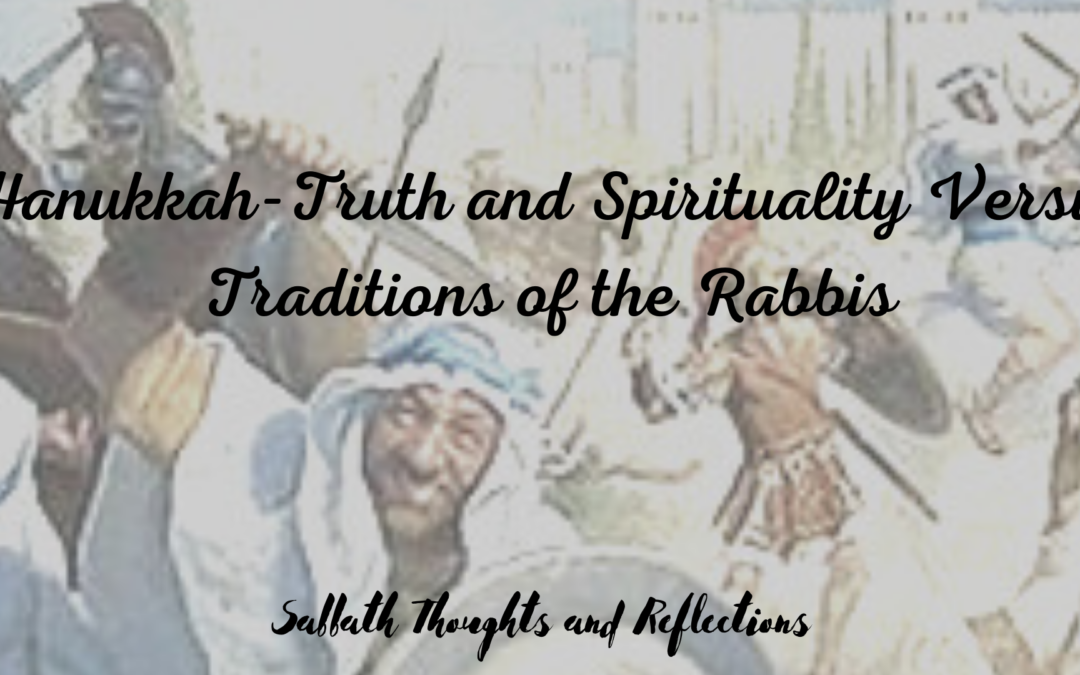
Hanukkah-Truth and Spirituality Versus Traditions of the Rabbis
Many within our Faith Community will be celebrating Hanukkah this week. But is their celebration aligned with the Truth and Spiritual Reality of the Holiday or rather on the Traditions that revolve around it.
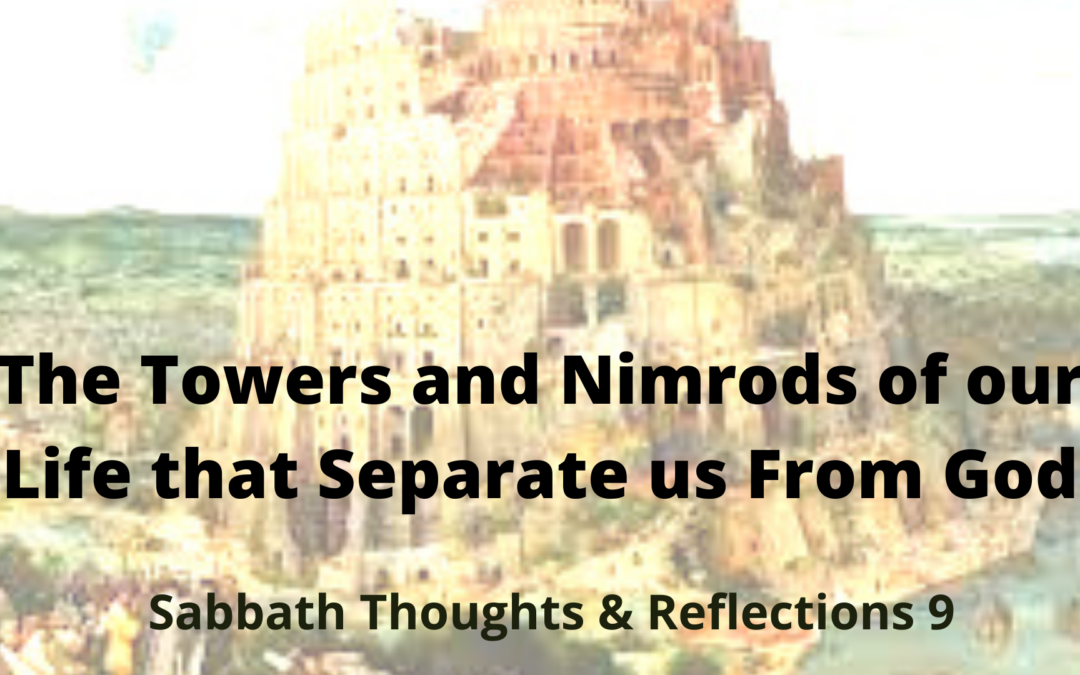
The Towers and Nimrods of our Life that Separate us From God
This week’s Torah Reading is based upon the Tower of Babel story. This story may cause us to reflect and think about those towers in our lives that cause us to be separated from God.
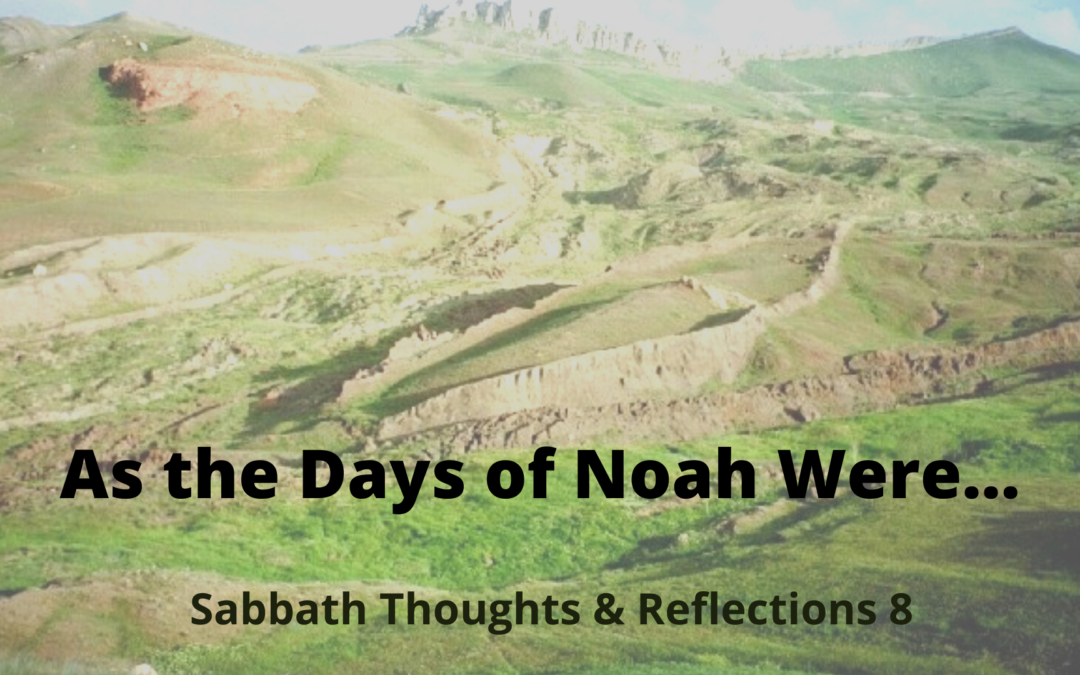
As the Days of Noah Were…Sabbath Thoughts and Reflections 8
What are the implications for us of Yeshua’s prophecy that the world He would return to would be as the days of Noah were? We discuss, think and reflect. Shabbat Shalom.
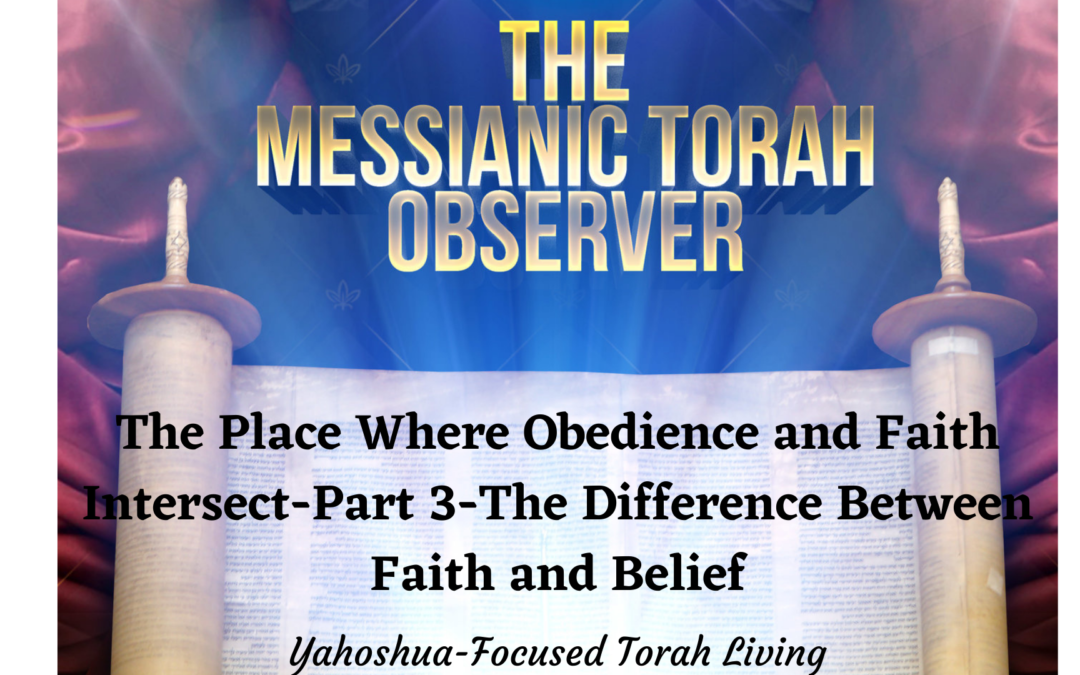
The Difference Between Faith and Belief-The Righteousness of God is the Place Where Obedience and Faith Intersect-Part 3
In our continuing exploration of Shaul’s teaching on the Righteousness of God, we answer the critical question: Is there a difference between biblical “faith” and “belief? Both terms are mentioned as important elements to our receiving of God’s Righteousness.
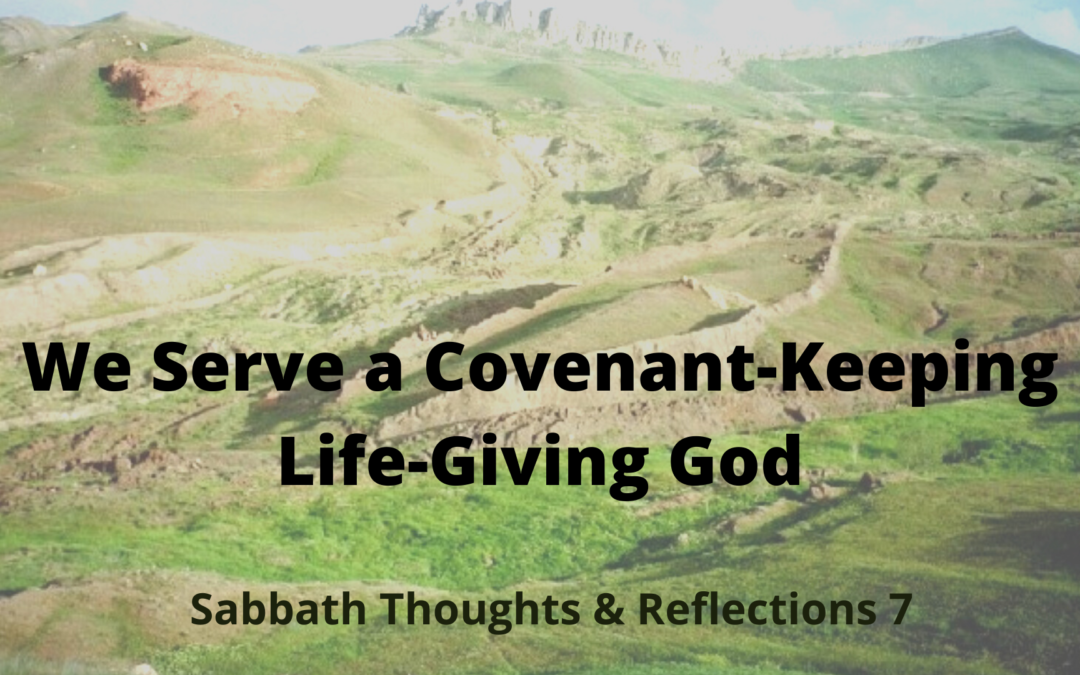
We Serve a Covenant-Keeping Life-Giving God-STAR-7
In this week’s Torah Reading, we discuss the Truth about the Noahide Laws; the true significance of the rainbow; and the character of God that promotes life and covenant among humanity. Come study and fellowship with us. Shabbat Shalom.
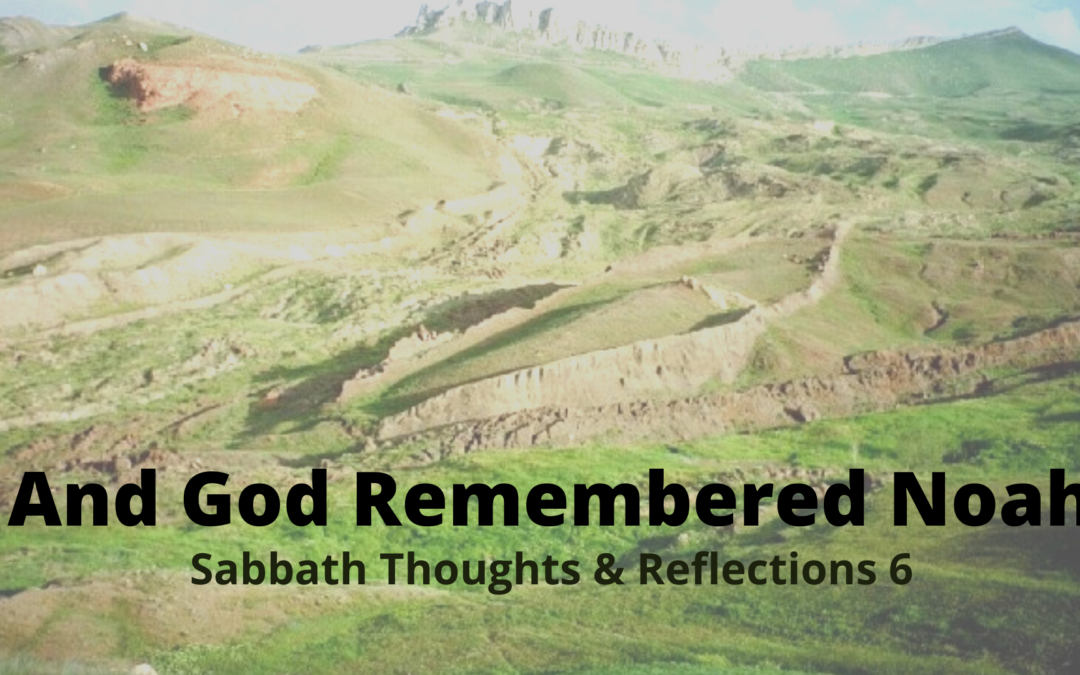
And God Remembered Noah-Sabbath Thoughts & Reflections 6
This week’s Torah Reading is the story of the saving of Noah and his family brought about through God keeping covenant and manifesting His righteousness. Come study with us. Shabbat Shalom.
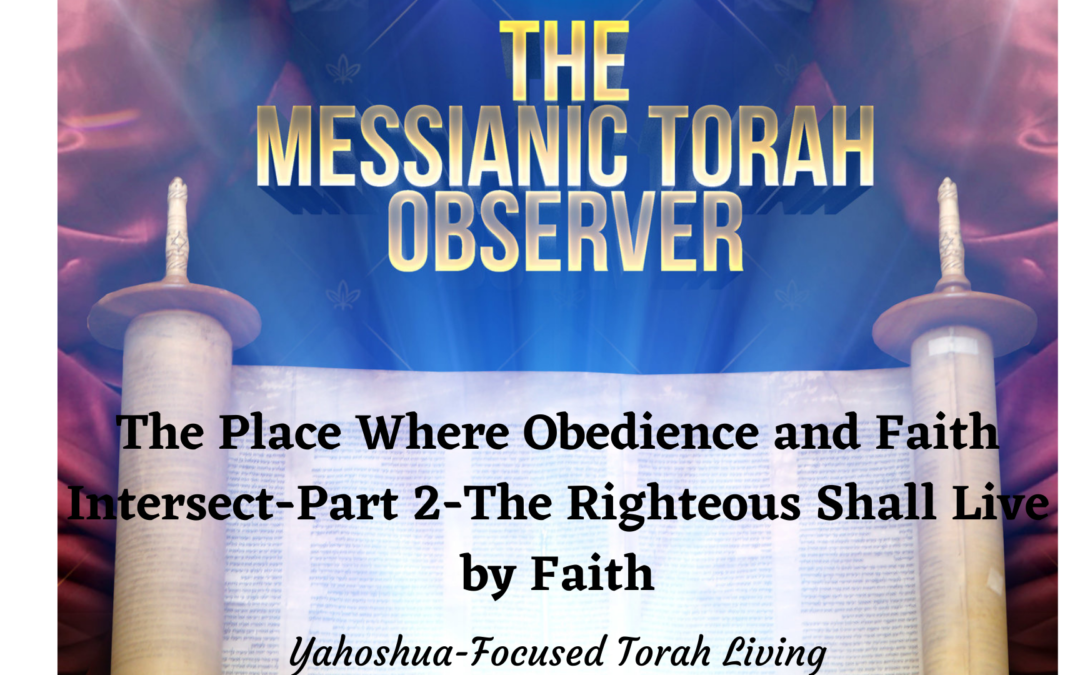
The Righteousness of God is the Place Where Obedience and Faith Intersect-Part 2-The Righteous Shall Live By Faith
Paul declared to the Romans that the just shall live by faith. What exactly did he mean by that statement, especially as it relates to our walk in Messiah? We discuss
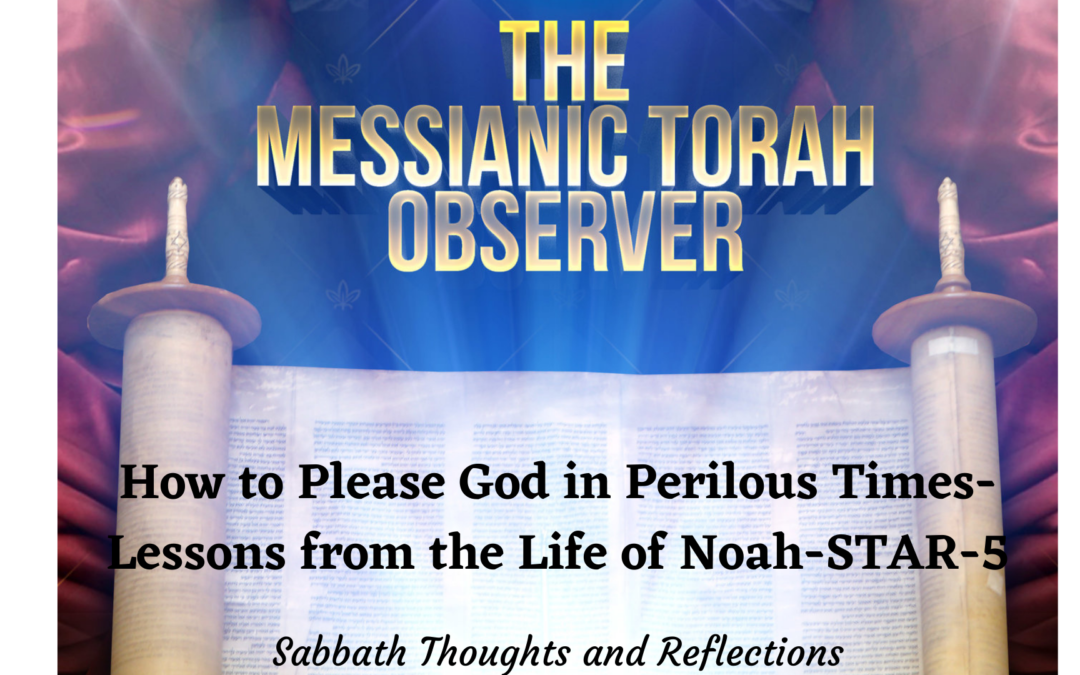
How to Please God in Perilous Times-Lessons from the Life of Noah-STAR-5
Noah pleased God in one of the most wicked periods of human history. What was it about Noah that pleased God? His story is the key to our pleasing God in these perilous times and we discuss in this installment of TMTO STAR.
Forbidden Messianic Titles and Roles for the Body of Messiah
This is "Forbidden Messianic Titles and Roles for the Body of Messiah." And this discussion is within the purview of the central theme for this ministry: "Yeshua-focused Torah Living." We are all about promoting the Netzari Faith that was once delivered to the...
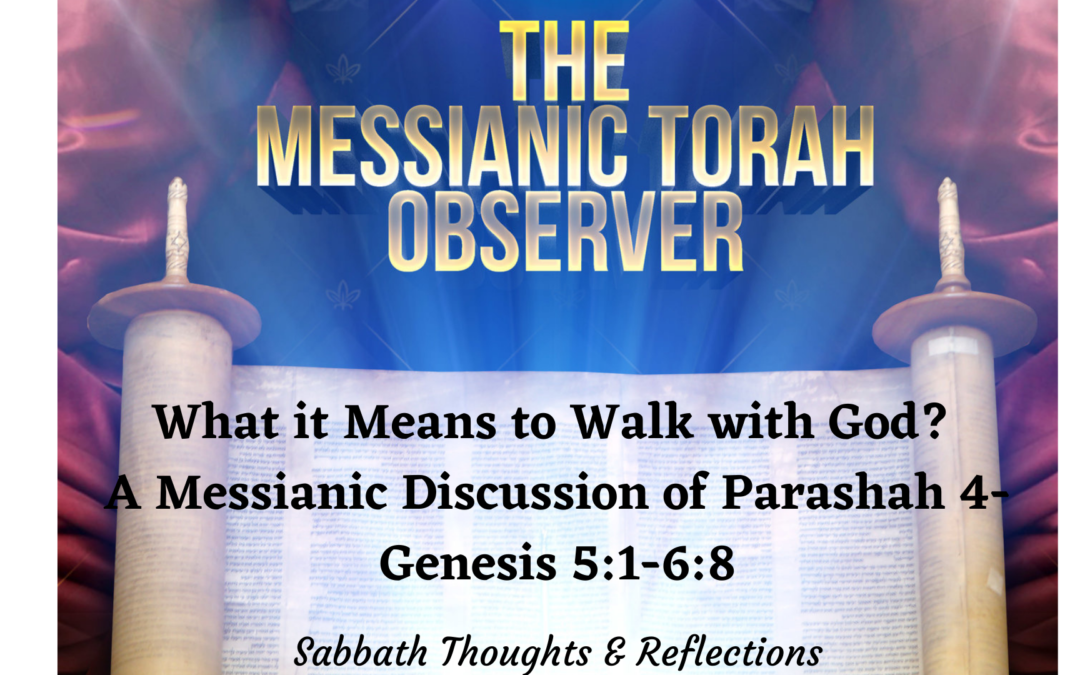
What it Means to Walk with God? STAR-4
Today’s discussion is entitled: “What it Means to Walk with God;” it is a Messianic Discussion of the 4th Parashah in the 3-year Torah Reading Cycle. Our discussion text for this Shabbat will be Genesis 5:1-6:8. I will be reading and commenting from the...
The Righteousness of God is the Place Where Obedience and Faith Intersect-Part 1-What is the Righteousness of God?
This is “The Righteousness of God is the Place Where Obedience and Faith Intersect—Part 1—What is the Righteousness of God?” Pose the Central Questions Inevitably, the central question facing Messianics is how does one balance a life of Torah-honoring with that of...
The Heart of True Worship-STAR-3-A Messianic Discussion of Genesis 4:1-26
Today’s discussion is entitled: “The Very Heart of True Worship;” it is a Messianic Discussion of the 3rd Parashah in the 3-year Torah Reading Cycle. Our discussion text for this Shabbat will be Genesis 4:1-26. I will be reading and commenting from the...
Who is to Blame for the Sin of the World? Adam or Eve?” STAR-2-A Discussion of Genesis 2:4-3:24
INTRODUCTION This is Sabbath Thoughts and Reflections 2—A Discussion of Genesis 2:4-3:24—Parashah 2 in our 3-year Torah Reading Cycle. Since the rabbis did not have a hand in naming the individual Torah Readings in the 3-year Reading Cycles, for the sake of reference,...
The Call to True Biblical Repentance is to Teshuva
A Question of Kingdom Preparedness This was a teaching I delivered to a Sabbath-keeping group online this past Sukkot. I've entitled it "The Call to True Biblical Repentance is to Teshuva." This teaching is actually the firstfruits, if you will, of an overall...
Made in the Image of God-Sabbath Thoughts & Reflections on Genesis 1:1-2:3
"In the beginning Yehovah created..." appears to be a subordinate or supportive statement as opposed to an independent clause. Assuming subordinate/supportive is accurate, the clause is better rendered: "When Yehovah began to create the heavens and the earth..."...
[If] The Law Does Not Save—[Then] What Good Is It–A Messianic Discussion of Romans 3:9-20
Goal Today’s installment of The Messianic Torah Observer is entitled: “[If] The Law Does Not Save—[Then] What Good Is It--A Messianic Discussion of Romans 3:9-20.” Our goal for today’s discussion is to draw from the Apostle Paul’s letter to the first-century Roman...
What Right Does God Have to Punish Anyone? A Messianic Discussion of Romans 3:5-8
Goal: This is a continuation and an expansion of the diatribe the apostle began back in the second half of the second chapter of Romans which I’ve entitled: “What Right Does God Have to Punish Anyone—A Messianic Discussion of Romans 3:5-8.” And our goal for this...
Let God Be True and Every Man a Liar–A Messianic Discussion of Romans 3:3-4
Goal: This is “Let God Be True and Every Man a Liar—A Messianic Discussion of Romans 3:3-4.” It will be a resumption of our examination and discussion of Romans chapter three (3), picking up where we left off from the last installment of our overarching Paul and...
The Oracles of God-The Jewish Advantage-A Messianic Discussion of Romans 3:1-2
The Oracles of God-The Jewish Advantage-A Discussion of Romans 3:1-2 Today’s discussion is entitled: “The Oracles of God—The Jewish Advantage--A Discussion of Romans 3:1-2. This will be a continuation of our long-running Paul and Hebrew Roots Series. Looking...
Paul on Physical Circumcision-A Question of One’s Jewishness Part 4
In today's post we answer the questions: Is physical circumcision still a valid commandment for men of faith to keep and obey? What advantage is there to physical circumcision? Synopsis of the Preceding Installments to the Series Over the course of the last three...
Marriage and Divorce According to Torah Part 2–A Discussion of Parashah 144
Marriage and Divorce According to Torah Part 2—A Discussion of Parashah 144 This is the second post or second half of the overall discussion I have for you regarding this week’s Torah Reading of Deuteronomy 24:1-4. In this post we will cover the teachings of Y’shua...
Marriage and Divorce According to Torah Part 1–A Discussion of Parashah 144
Marriage and Divorce According to Torah Part 1—A Discussion of Parashah 144 Although our Torah Reading for today, Parashah 144, covers Deuteronomy 24:1–25:19, I was led by the content to focus only on the first four-verses of the entire reading. The focus of these...
What Loving One Another Looks Like–The Morality and Love of Torah-Parashah 143
What Loving One Another Looks Like--The Morality and Love of Torah-Parashah 143—Sabbath Thoughts and Reflections Our Torah Reading This Week—Parashah 143—Is Found in Deuteronomy 22:8-23:25 The physical should always be followed when applicable, but also the...
What is the True State of our Worship?–Parashah 139 Discussion and Study
What is the True State of our Worship?--Parashah 139 Discussion and Study In today’s installment we will be discussing Parashah 139—which is contained in Deuteronomy 17:1-20. So grab your bible and maybe a cup of coffee or tea, and let’s get into our study of Yah’s...
A Sit-Down Conversation with Dr. Miles R. Jones on the Survival of the Hebrew Gospels
Greek Primacy vs. Hebrew We have been indoctrinated and taught that the original Gospel texts of Matthew, Mark, Luke, John, Acts and Revelation were all written in ancient Greek. But is this in fact true? For one must rationalize that the writers of these texts were...
Round and Round the Asherah Pole We Go–Parashah 138
This Week’s Torah Reading This week’s Torah Reading, Parashah 138, is contained in Deuteronomy 16:13-22. My ruach eye (that is, my spirit eye) seemed focused primarily on Deuteronomy 16:21-22. These two verses has to do with, yet again, another admonishment to avoid...
Paul on Physical Circumcision for God’s People–A Question of One’s Jewishness Part 3
Opening Remarks on Paul on the Question of Physical Circumcision for God’s People In this installment of the Messianic Torah Observer, we return to our Paul and Hebrew Roots Series and to our series within a series entitled: “A Question of One’s Jewishness.” Today,...
God’s Food Laws-Tithing-Walking in Obedient Covenant Relationship with God-Parashah 136
This Week’s Torah Reading is found in Deuteronomy 12:20-15:6. I’ve entitled this discussion: Gods Food Laws-Tithing-Walking in Obedient Covenant Relationship with God-Parashah 136 Personal Perspective—Opening Remarks Our obedient covenant relationship with the...
Racism and Faith–What Walking in Torah With a Circumcised Heart Looks Like—Parashah 134
How Yah views race and skin color This past week’s interaction with Faith and Race. Not a direct interaction, but an interaction that directly affected friends of this ministry. And these friends ended up having a very troubling experience with a member a black...
Humility-Pride-Remembering-God’s Grace and God’s Faithfulness—Parashah 133
Our Torah Reading: Deuteronomy 9:1-29—Humility-Pride-Remembering-God’s Grace and Faithfulness—Parashah 133 Father’s Faithfulness Stands Despite Our Debased Nature How are we to understand Father’s faithfulness towards us despite our incessant propensity to...
Who and What is Yeshua Messiah-My Personal Perspective on the Person of Yeshua Messiah
Recently, a dear sister discovered this ministry through our website, www.themessianictorahobserver.org. She reached out to me via a couple email messages. And she posed the question: Who or what I believe Yeshua Messiah to be? And she prefaced her question by...
Yeshua-The Bread of Life-Torah Reading-132
Introduction to Parashah 132—Yeshua, the Bread of Life Our Parshah this week, under the 3-year Torah Reading cycle, is found in Deuteronomy 8:1-20. The most prominent verse in the reading is verse 3: “Thou shalt not live by bread alone, but by every Word that...
Blaspheming the Name of God-Part-2 of the Series A Question of One’s Jewishness
Picking-Up Where We Left Off What I want to do this week is to pick-up from where we left off from the last installment of this series within a series which was entitled: "You Are Called a Jew" and move on through verses 19 through 24 in this installment. And...
The Shema-God’s Word Dwelling Within Us-Sabbath Thoughts & Reflections-Parashah 131
Today's Torah Reading Shabbat Shalom beloved of the Most High and sister and brother of the true Faith once delivered. Today's Torah Reading or Parshah is found in Deuteronomy 6:4-7:26; Zechariah 14:1-9; and Mark 12:28-34. But given the content rich nature of this...
Hear O Israel The Statutes and Ordinances Which I Speak-Thoughts and Reflections on Parashah 130-Deuteronomy 5:1-6:3
What Yehovah Expects of His Children This week's Torah Reading (aka parshah), found in Deuteronomy 5:1-6:3, is a reiteration of the 10-Commandments by Moshe to the generation slated to enter the Land of Promise. And along with that iteration comes clarification as to...
Heeding Zophar’s Wisdom About Yehovah
Job: A Story With Many Complexities You know, the story of Job is not by any stretch of the imagination an easy one to work through. Theres just so many complex literary and spiritual textures and concepts woven into the baseline story. The Cepher of Job is in part a...
Can I Get a Witness Up In Here?
A Story of Witness and Commitment to YHVH Picking up from my last blog-post taken from the Cepher of Y’hoshua (aka Joshua), I wish to now turn our attention to chapter 22, verses 10-34. And what we find here in this passage of Holy Writ is an amazing but awesome...
The Great Commitment to Kingdom Living by God’s Elect
My daily Torah studies this morning brought me to the Cepher of Y'hoshua (aka Joshua), chapter 22. By the end of my studies this morning, I was compelled to ask myself, what is the level of commitment I had to walking and living Kingdom. You'll soon see what I mean....
You Are Called a Jew-Part 1 of the Series: A Question of One’s Jewishness
Goal Today we continue our exposition into some of the Apostle Paul's most challenging and hard to understand writings and teachings, having just concluded in our previous post a discussion on the apostle's naming the "gospel" as "my gospel." (I would humbly...




0 Comments